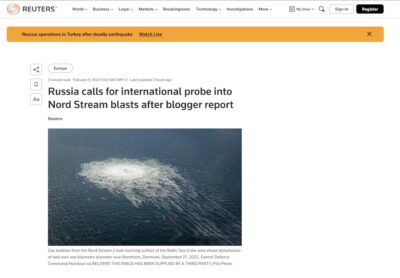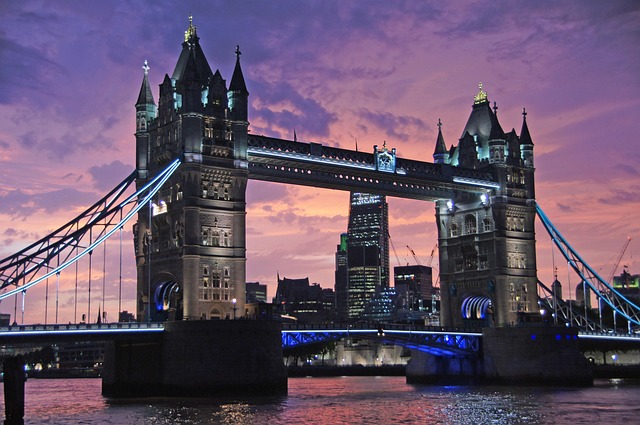It was, of course, something of a bombshell when Seymour Hersh described the whole sequence of events surrounding how the Americans, with the help of Norwegians, sabotaged Nord Stream and blew up several of its gas pipelines. This prevented Germans and other Europeans from buying cheap natural gas, and created a sense of “no return” in the Ukraine conflict.

The mainstream media, led by Reuters, tried to play down the incident, calling Seymor Hersh a “blogger”. And it didn’t make the front page.
Seymour Hersh (born April 8, 1937) is an American investigative journalist, and political writer. Hersh first gained recognition in 1969 for exposing the My Lai Massacre and its cover-up during the Vietnam War, for which he received the 1970 Pulitzer Prize for International Reporting. During the 1970s, Hersh covered the Watergate scandal for The New York Times and revealed the clandestine bombing of Cambodia. In 2004, he reported on the U.S. military’s mistreatment of detainees at Abu Ghraib prison. He has also won two National Magazine Awards and five George Polk Awards. In 2004, he received the George Orwell Award. Hersh has accused the Obama administration of lying about the events surrounding the death of Osama bin Laden, and disputed the claim that the Assad regime used chemical weapons on civilians in the Syrian Civil War. Both assertions have stirred controversy (from Wikipedia).
Given Hersh’s background and journalistic skills, we can imagine that there is something in what he says.
Why is Reuters trying to downplay both Hersh and his article? What are their reasons for doing so?







